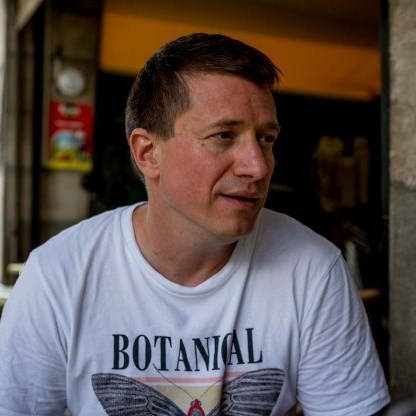While the rest of Europe watched with horror as Alexander Lukashenko unleashed unprecedented terror on its own people, the Hungarian government helped him to stabilize his power.
Thousands of people rally in Belarus’ capital and other cities contesting the re-election of the country’s authoritarian leader and protesting against the subsequent brutal police crackdown on demonstrators. Most EU member states condemned police violence and demanded Lukashenko to release political prisoners immediately. The Hungarian government did not fall in line and maintained a deafening silence for several days. The government-controlled media, typically the first to condemn the slightest anomalies of Western democracies, went eerily quiet about the events in Minsk. Most reports followed the narrative of Russian news agencies. Magyar Hírlap, a prominent pro-government newspaper published an article that uncritically repeats the accusations of the Russian foreign ministry about an alleged foreign conspiracy behind protests against Lukashenko.
When the governments of Poland, Lithuania, Latvia and Estonia posted a call for action calling upon Lukashenko to end violence and initiate a dialogue with protesters, Orbán’s government did not join.
Péter Szijjártó, the Hungarian foreign minister did not follow the example of the Czech foreign minister either, who summoned the ambassador to Belarus to his office in Prague. Fidelitas, Fidesz’s youth chapter, abstained from the joint statement of YEPP, the youth coalition of the European People’s Party, signed by 31 member organizations. Finally, Mr. Szijjártó broke his long silence yesterday to make a short statement, where he called on the EU to pursue dialogue with Belarus, and avoid burning bridges with the country.
We are interested in EU decisions based on dialogue that does not make it impossible to build future relations between Belarus and the European Union, nor do they reject the Eastern Partnership program,
Hungarian Foreign Minister Péter Szíjjártó on Facebook
he wrote in a Facebook post on Thursday. The foreign minister failed to condemn police brutality; he did not call for the release of political prisoners; and he did not speak up for democracy at a time when thousands of people are beaten and tortured by the authorities. Instead, he weakened the EU’s commitment to stand up for democracy, and helped Lukashenko stabilize his stand in its relationship with the EU.
This should not come as a surprise to those who remember Orbán’s June visit to Minsk, which we covered in this blog post. The Hungarian government increasingly used a budding relationship with Lukashenko to ally Hungary with other authoritarian regimes, such as Russia, Turkey, or Belarus, in the name of its new foreign policy doctrine, the so-called Eastern Opening. This doctrine signals the growing distance of Hungary from European democratic governments and often leads to bitter conflicts with them, in a way that has not been seen since the Cold War.
Orbán has not always been so reluctant to condemn police brutality and electoral fraud.
Back when he was in opposition in 2006, he gave a powerful speech condemning the left wing government’s crackdown on protesters after Ferenc Gyurcsány was revealed to have made an offhand comment in a closed meeting admitting “they had been lying to the people day in and day out.” “The EU should make it clear that it does not give any assistance, for any considerations, to lying and cheating governments that have not given up the moral heritage of the communist regimes,” declared Orbán at the meeting of the European People’s Party, the fraction of the centre-right parties of the European Parliament.” Orbán also emphasized that the EU should resist the pressure to subordinate community values to economic interests.
From here, ladies and gentlemen, it takes only one step for the power to violate the rule of law, as it did yesterday in Budapest, when a brutal police attack was launched against demonstrators.
Hungarian Prime Minister Viktor Orbán as leader of the opposition at a meeting of the European People’s Party in 2006
“Much water has run down the Danube since then,” as the Hungarian saying goes. Orbán’s world views have changed beyond recognition since the 2006 protests. In less than 15 years, he went from fervent defender of civil liberties and democracy, to authoritarian leader. Today, he is known for vicious attacks on democratic institutions and civil liberties at home, and for forging controversial alliances with bloody dictatorships abroad. The new approach of the Orbán government to authoritarian regimes is based on realpolitik that puts economic interests before considerations about morality and human rights; a U-turn from his 2006 position.
The Hungarian government’s stand behind Lukashenko splits it not only from Western member states, but also from Hungary’s Eastern allies, such as Poland, which plays a leading role in mobilizing EU action against Lukashenko’s regime, and called for an emergency EU summit to discuss the situation in Belarus. The summit is scheduled to the end of September and there are serious economic sanctions on its agenda against Belarus. It is likely that Szijjártó’s statement is a message to member states that his government will not support further sanctions against Belarus.

Péter Sárosi
Executive Director of the Rights Reporter Foundation.
He is a historian, a human rights activist and drug policy expert, the founder and editor of the Drugreporter website since 2004, a documentary film maker and blogger. He has been working for the Hungarian Civil Liberties Union (HCLU) for more than 10 years. Now he leads the Rights Reporter Foundation.
Image: Takács István Gábor

